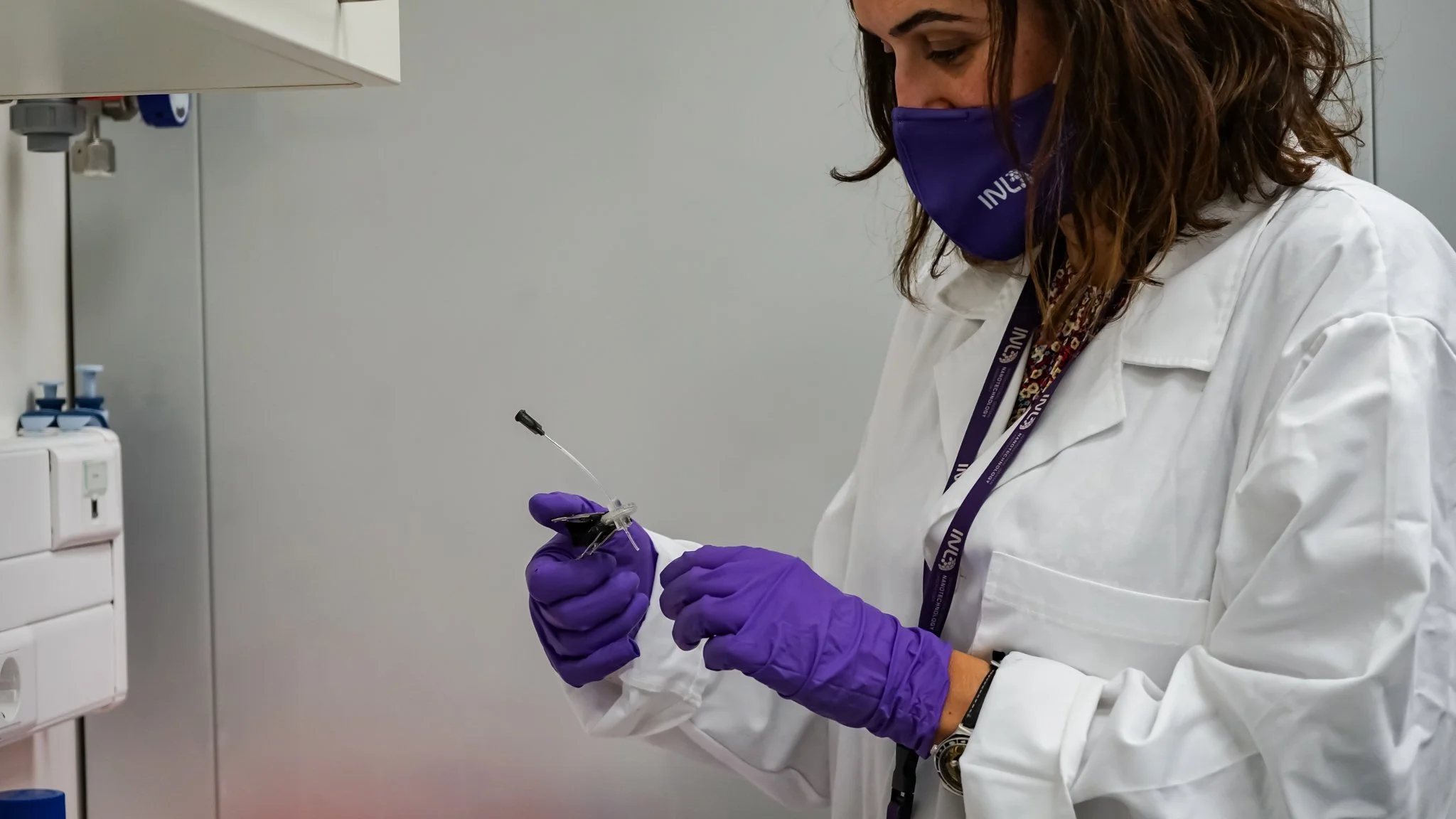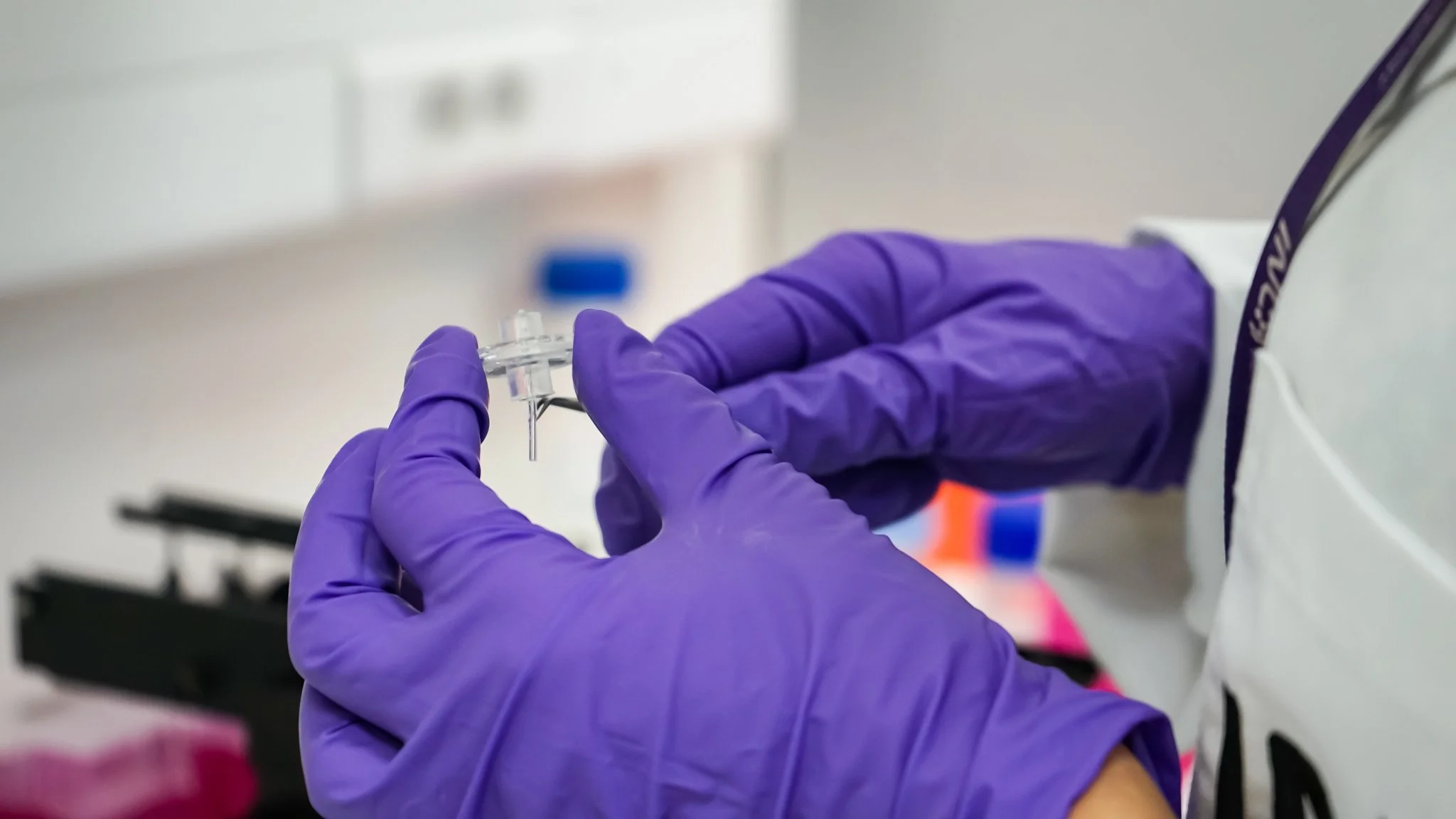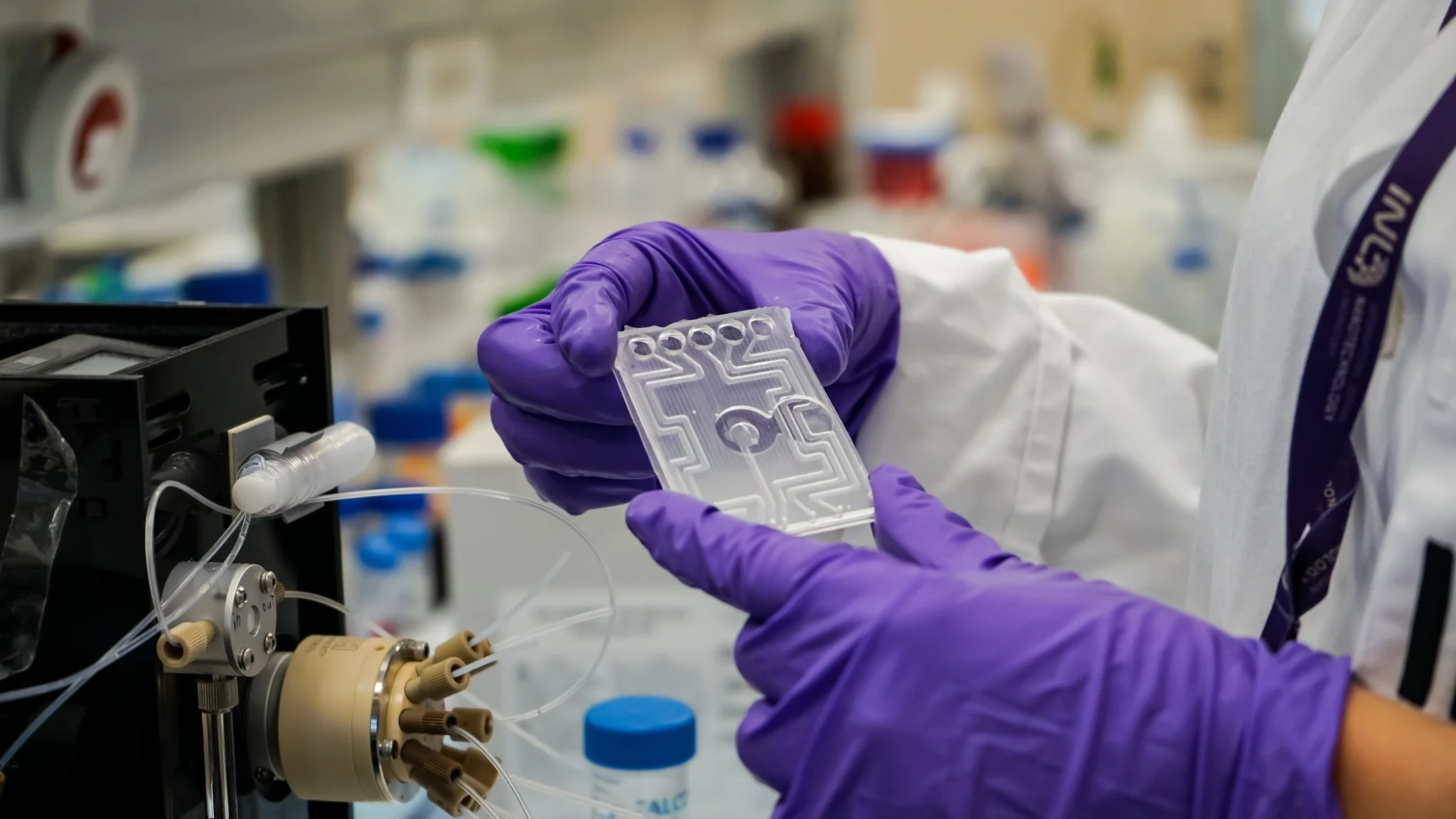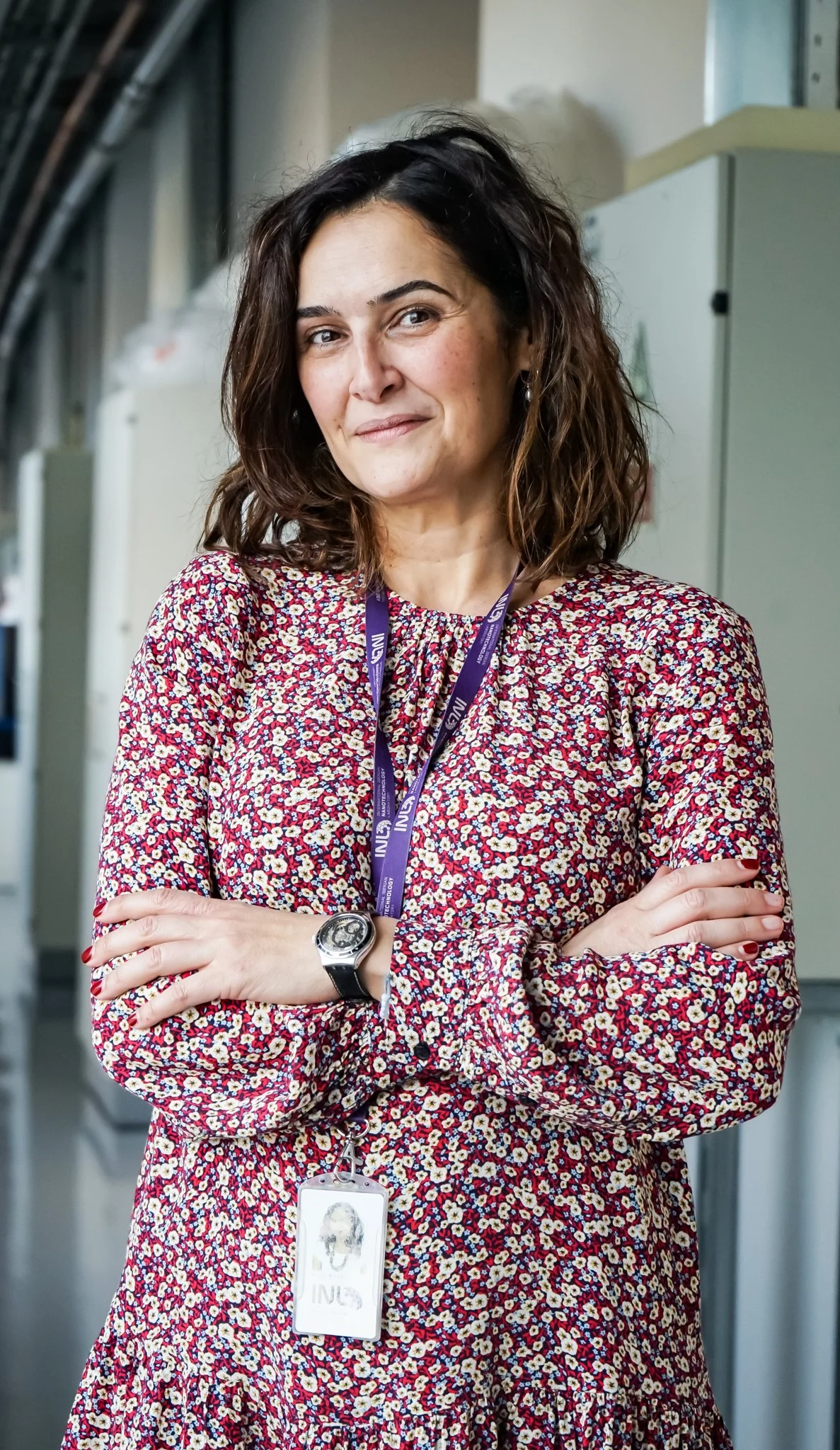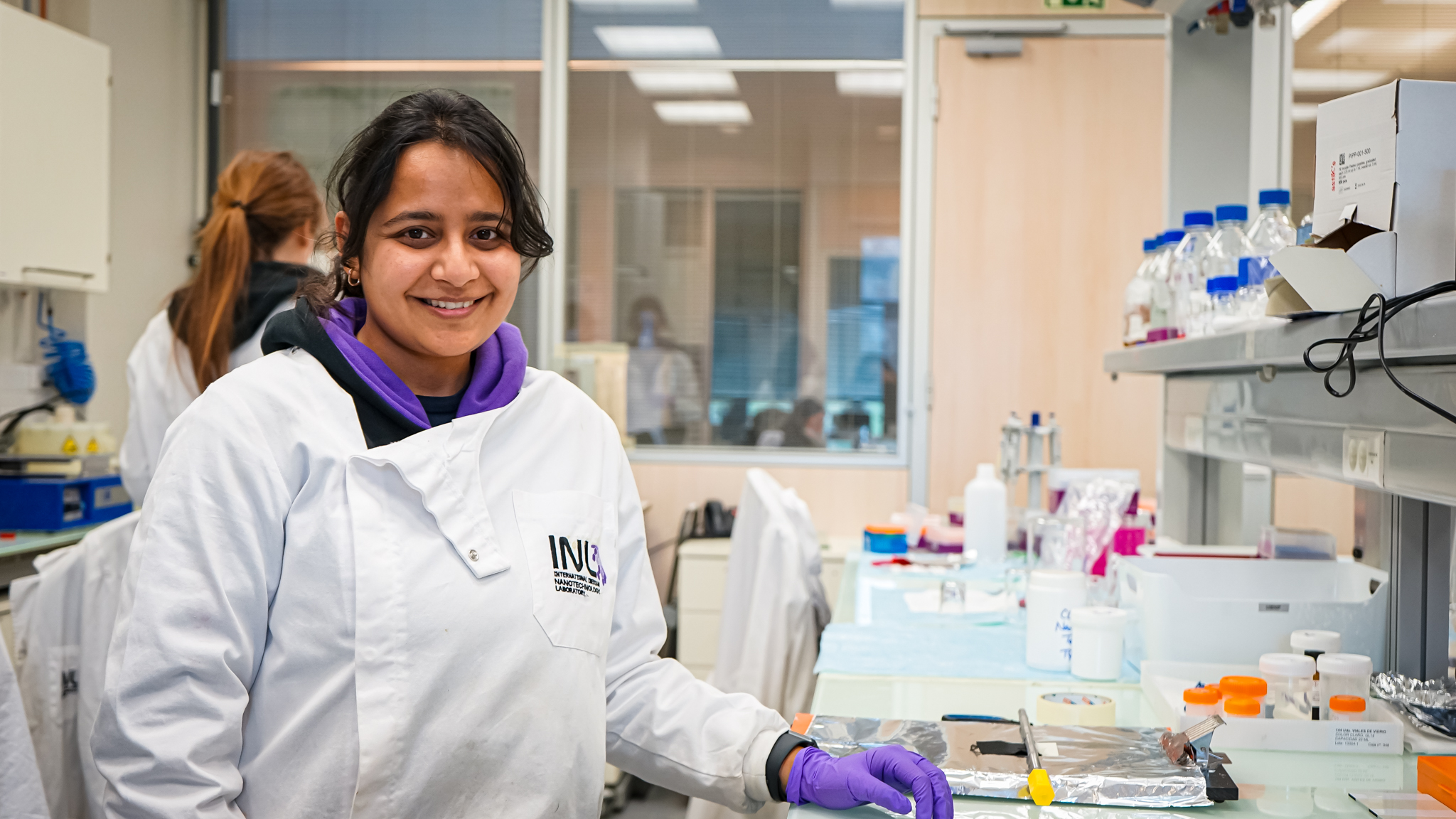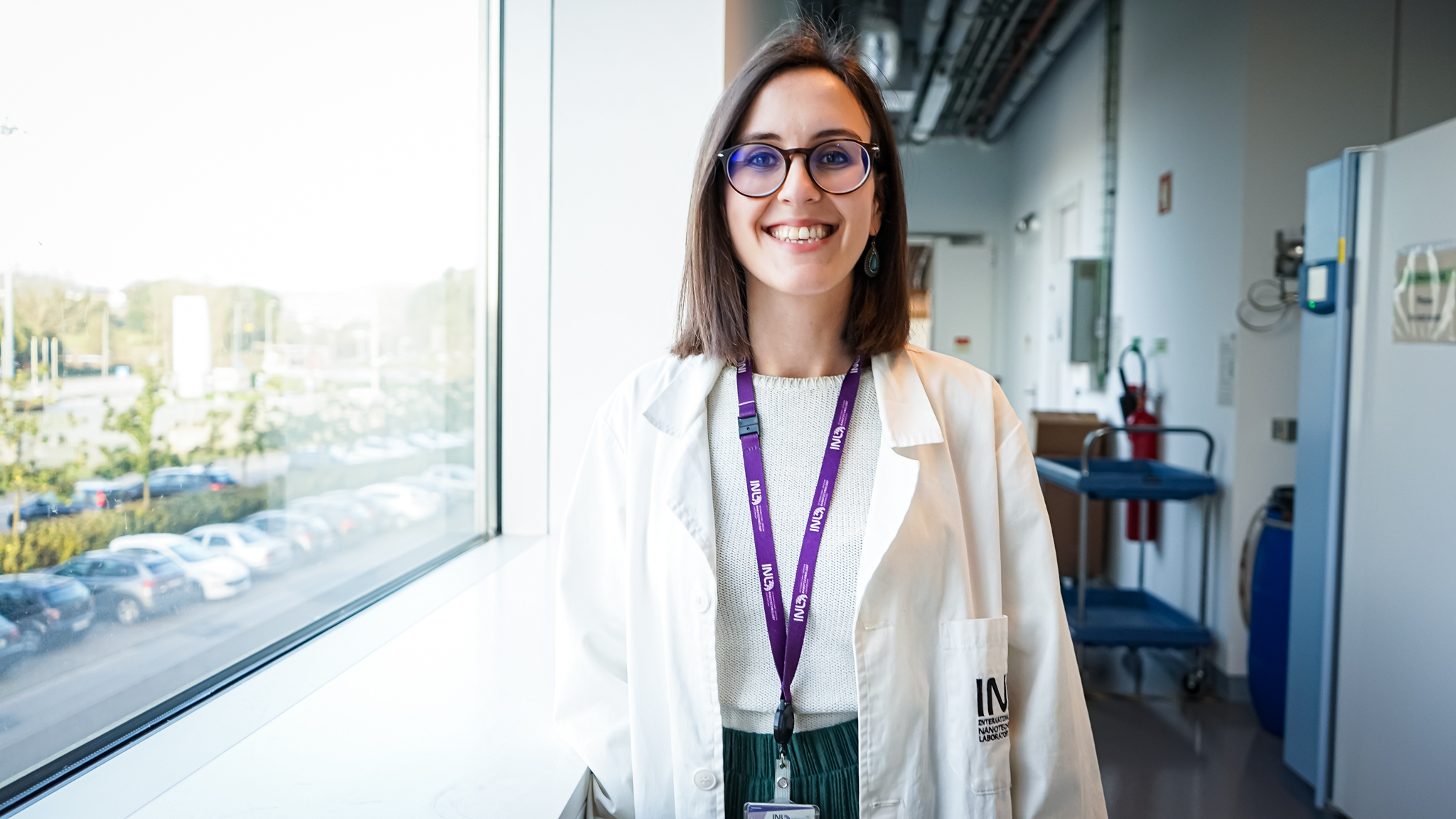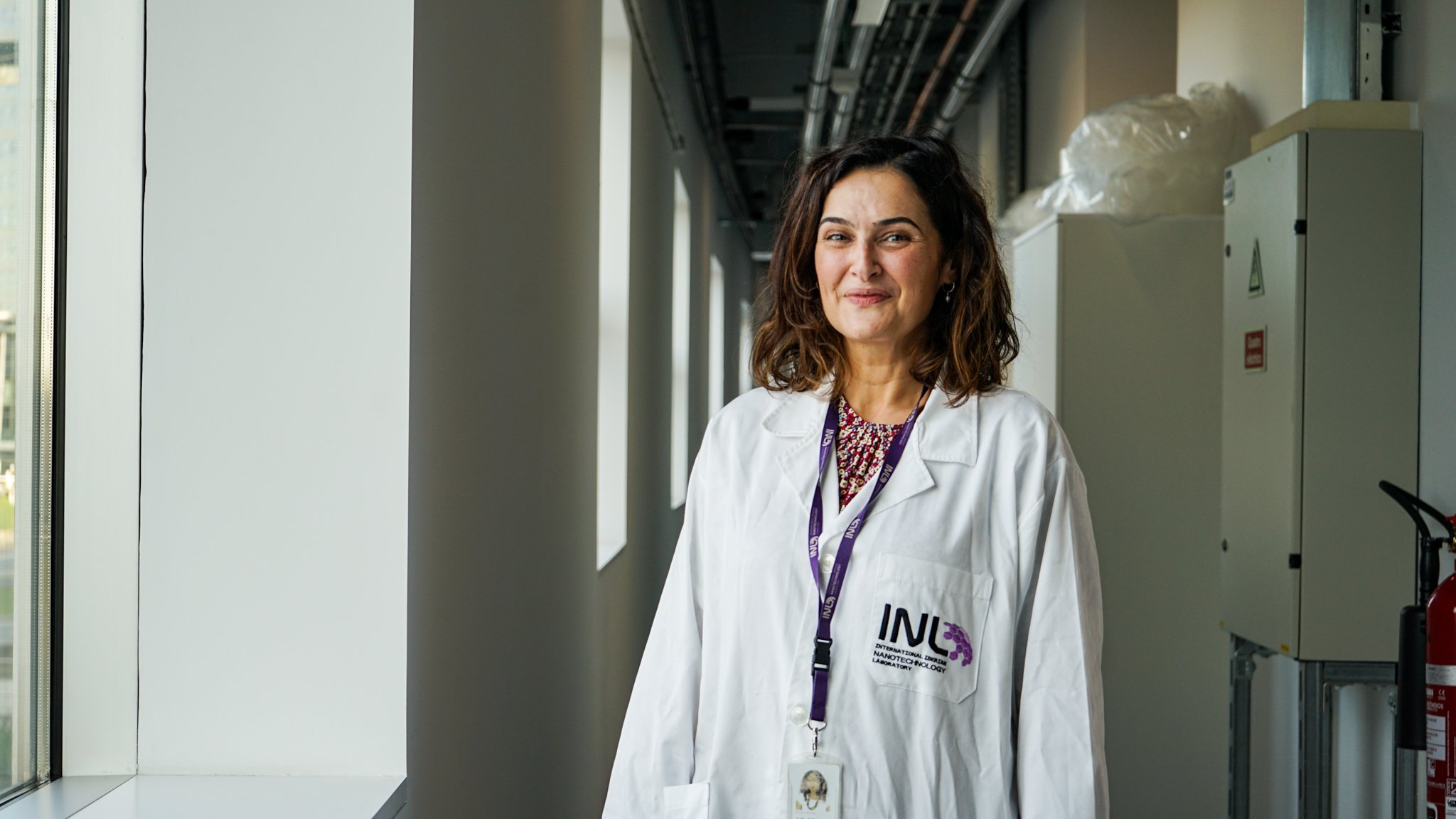
Meet Marta Prado, the first Postdoctoral Researcher to arrive at our facilities when INL was built
February 24, 2023
We will shine a spotlight on women in STEM with this new interview series with Women working in/with Science at INL – International Iberian Nanotechnology Laboratory. It is important to celebrate the amazing contributions women make to science.
Marta Prado is the group leader of the Food Quality and Safety Research Group (FQ&S) at INL – International Iberian Nanotechnology Laboratory. Her research interests are the development of new, fast and reliable detection methodologies combining molecular biology and nano- and microfabrication technologies for different applications particularly in the field of food safety and quality, but also for other biological samples.
The research of the FQ&S research group deals with both targeted (using specific DNA amplification approaches and aptamer-based detection) and non-targeted (mainly through Next Generation Sequencing, NGS) and the methodology is based on working on very specific analytical needs and on using a modular approach for each of the steps of the analytical process.
At INL since 2010, can you tell us a bit about your journey and what got you interested in the Life Sciences – Food Quality field?
Indeed, I was here at the very early times, in fact, I was the first postdoctoral researcher to arrive on-site at the newly built INL. Therefore I was very much involved in creating INL from scratch with its challenges and difficulties but with great enthusiasm as well, to see that we were creating something unique. I look back in time and I am proud to see how far we have gone and what we created with a lot of effort.
Regarding my journey, I did a PhD in Food Science and Technology from the University of Santiago de Compostela (USC) and later I moved as a postdoctoral researcher to one of the sites of the Joint Research Center, from the European Commission in Geel (Belgium) where I worked for more than 4 years when I was about to finish my contract there, I saw that INL was looking for junior research group leaders in the area of food and I found it very interesting since it was a new international organization, where I could develop further my career on the application of nanoscience and nanotechnology to the food area, back them it was a very new area.
How did the Food Quality and Safety Research group start and how does the group correlate with INL’s Research Strategy?
The FQ&S research group was formally created in 2016, as part of a deep restructuring of INL back them, and a number of funded projects that started in that period. Since then we have been growing exponentially in the number of projects, external collaborations, Master’s and PhD’s and scientific articles.
We are aligned mainly with the Foodture Cluster strategy, particularly with mission 3, “to develop miniaturized, faster and yet reliable analytical tools to be used along the food value chain reducing the time of analysis from days to hours” but our developments are as well related to other clusters and missions, since we are working on the combination of micro and nanofabrication with molecular biology to develop faster and miniaturized devices that are designed to be used on decentralized settings.
We work on the detection of foodborne pathogens and spoilage-responsible microorganisms, on food allergens detection, as well as on food authenticity and fraud detection, but since our technology can be applied in other areas, we have worked on the detection of invasive species on the environment as well as on some applications in clinical diagnostics. Another key part of our developments is that we are working on the connectivity of our devices so they can become part of a digitalized agro-food value chain.
Briefly, what do you enjoy about your work and how do you see your research developments in the near future?
My biggest motivation is the impact that I can create in the field in which I am working on, food has a very important effect in our health, helping to avoid or delay the onset of certain diseases of high impact nowadays, in this sense to ensure that our food is safe is extremely important, particularly in low resource settings.
At the same time, other topics that are very important to me are that we can also contribute to value the work of our farmers and help the responsible consumption of our resources, also valuing native varieties and regional products, helping the development of certain regions. This is very important in our specific environment with an extremely valuable gastronomic heritage, but with a high risk of depopulation in rural areas. In the near future I believe the study of microbiota and the effect that food ingredients have on its composition, as well as the effect of microbiota on food production will continue to be a very interesting field and the nano-enabled analytical methods will help the scientific community to the gather much more information that we are gathering nowadays, given us exciting possibilities to establish new links and to develop food products.
Together with this, I like the fact that my work gives me the opportunity to interact with people from other areas of research and from other cultures, I believe this is extremely enriching from both the scientific and personal point of view.
How do you feel the landscape will change for women in science in over the next 5 years?
I believe there is still a lot that can be improved, I think that girls (and boys) are both curious by nature and attracted by science, in most of the scientific studies there is a similar number of women or even more in some of them, at least in our environment, the same can be said for PhD students, numbers are in fact very similar, the problem is on leadership positions where the percentage of women is still very low, so this is one important problem we need to solve to end inequality and make the research truly inclusive.
According to the “UNESCO Science Report: towards 2030” published in 2021, only 11 % of senior research roles are held by women in Europe, I believe this will take time but the percentage will be balanced in the future not without a lot of work, and I feel that is our responsibility to contribute to this, for the ones to come and for the ones that fought before us so we could be here now.
Another important point that needs to be solved is the salary gap, nowadays there are still important differences in salary between women and men in the same position, and this happens even in academia and public institutions. Luckily the European Commission is launching new rules to provide more transparency and enable the enforcement of the equal pay principle between women and men. I hope these new rules will have an important effect in the next 5 years to truly reach equal pay.
